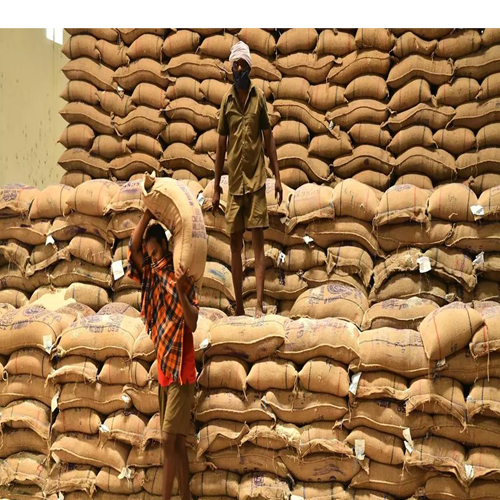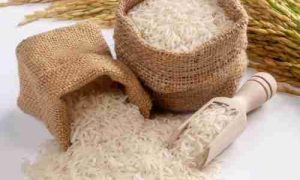Govt to sell ‘Bharat Rice’ at ₹29/kg in retail outlets from next week

The Centre on Friday decided to sell rice under the ‘Bharat’ brand at ₹29 per kg from next week directly to consumers in 5- and 10-kg packs through the cooperatives Nafed, NCCF, and Kendriya Bhandar. This comes after its request to rice millers to bring down prices failed to yield the desired results. It has imposed the Essential Commodities Act to make it mandatory for traders to declare rice/paddy stocks every Friday in a designated portal, starting February 9.
Based on the information collected on the stock position of rice, there would be a decision on whether to impose a stock limit similar to the one for wheat, sources said. The government has indicated that if prices in the domestic market do not fall, there may be a complete ban on the export of parboiled rice.
Prices of rice have risen by 14.5 per cent in retail and 15.5 per cent in wholesale markets from a year ago, government data show.
‘All options open’
Briefing media after the decision, Union Food Secretary Sanjeev Chopra said that “all options are open” to bring down the prices, when asked if the imposition of a stock limit on rice is the next step. Chopra emphasised that prices of all essential food items are under control except rice.
On market speculation that there may be a complete ban on the export of parboiled rice, he said there is no such plan, and its export until January 24 in the current fiscal has declined by six per cent from the April-January 2022-23 period.
The government has allocated 5 lakh tonnes of rice to the co-operatives for sale in the retail market in the first phase, and more quantity will be released if demand increases. E-commerce platforms will also be roped in to sell Bharat rice.
Chopra said since the rice held by the Food Corporation of India (FCI) contains more percentage of broken grain than the varieties available in the open market, the Government has asked the cooperatives to reduce the broken to less than 5 per cent before packing under “Bharat Rice”. This will also help to increase availability of broken rice in the market, which is suitable for ethanol production, he said.
Export curbs to stay
In the official order, issued by the Department of Food and Public Distribution on February 2, the government has directed “Processors/Millers, Traders/Wholesalers, Retailers and Big Chain Retailers in all States and Union Territories” to declare their stock position of rice/paddy under different categories – Broken Rice, Non- Basmati White Rice, Parboiled Rice, Basmati Rice and Paddy on the portal (https://evegoils.nic.in/rice/login.html) within seven days and on every Friday.
As some traders got confused about the categories, the government is likely to issue a clarification on the portal. There will not be any need to mention more than once even if someone has one type falling under two categories, sources said. For instance, exporters having Basmati parboiled rice will have to mention their stock position under Basmati category only and not under Parboiled category, sources said.
Stressing that there is no plan to lift export restrictions on rice, he said the stock declaration would ensure that entities that are holding stocks for reasons best known to them are able to get this kind of a signal and release the stocks into the market which should cool down the prices.
Supply issues
He highlighted that the government has taken various steps in terms of export regulations, including prohibition on shipments of non-basmati white rice from July 2023 and that of broken rice from September 2022, a 20 per cent export duty on parboiled rice until March 31, 2024 and minimum export price of $950 per tonne for Basmati rice. The export of parboiled rice (excluding parboiled Basmati rice) was 31.73-lakh tonnes (lt) between August 26, 2023, and January 20, 2024, said S Chandrasekaran, a foreign trade policy expert, adding that this is just 6.7 lt lower than the previous year.
“While looking into basmati rice exports for the same period, it has increased by 1.9 lt. Therefore, the effective impact of export duty on curbing parboiled rice export volume is 4.8 lt. This could be further explained by the Thai rice export price increase of $ 100/tonne, which is equivalent to India’s parboiled rice export price after adding export duty,” said Chandrasekaran.
The export of parboiled rice, excluding basmati rice, has merely declined 17 per cent after the imposition of export duty, he said. The policy challenge is that the export price and global market forces have sustainedly found an effective equilibrium to dilute the effect of the export duty, he added.
BV Krishna Rao, President, The Rice Exporters Association, said supply side issues are to blame for the rise in rice prices.
Source Link:https://www.thehindubusinessline.com/economy/agri-business/govt-to-sell-bharat-rice-at-29kg-in-retail-outlets-from-feb-9/article67804680.ece















